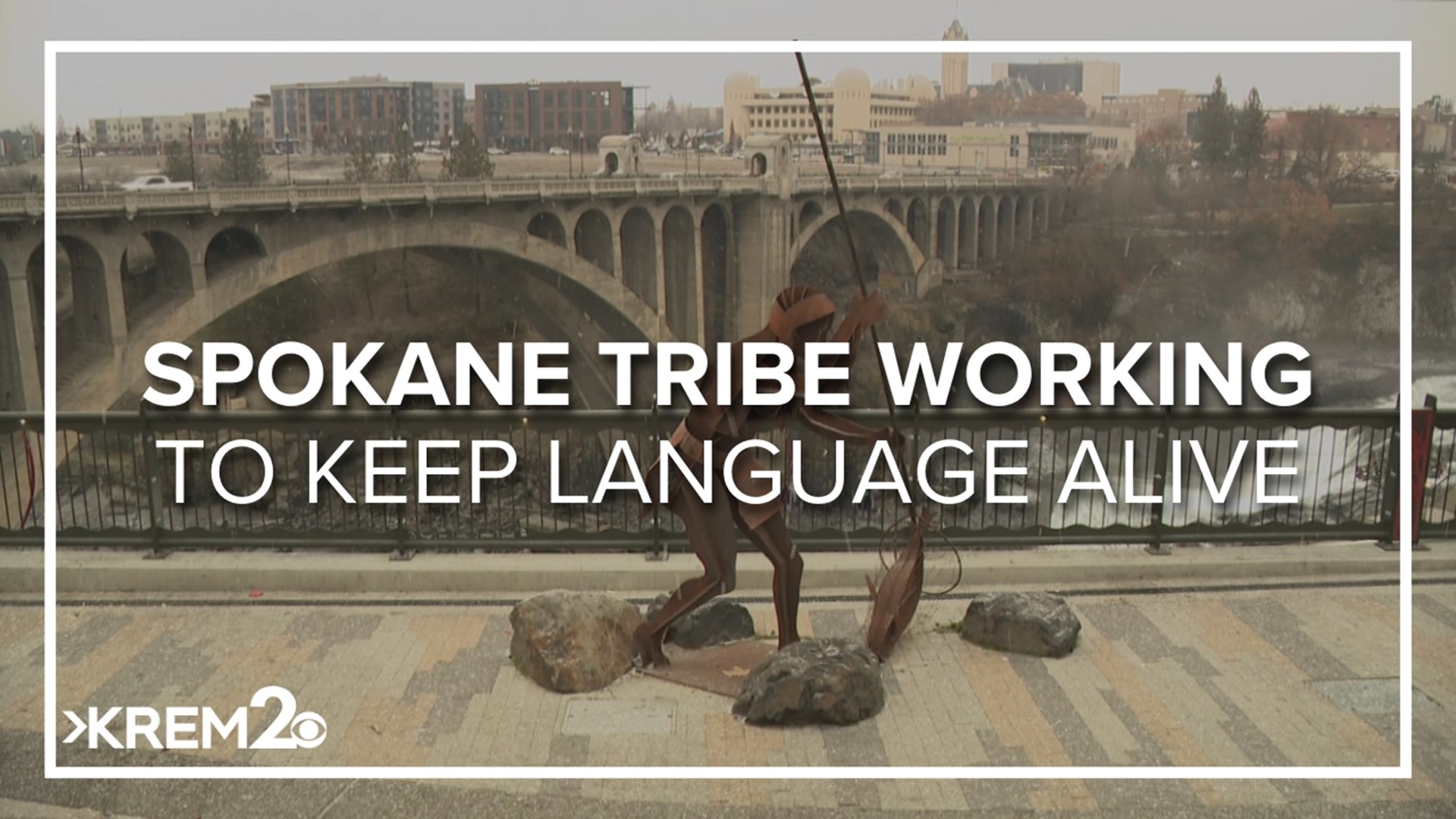SPOKANE, Wash. — The Salish language is native to many of our local tribes in the Inland Northwest, but sadly, not many tribal elders are left who are fluent speakers.
Marsha Wynecoop, is the Language Program Manager for the Spokane Tribe and has been working to revitalize the language for 25 years. "The interest, especially with the youth has always been there," said Wynecoop. "We were teaching at the Wellpinit School. When we first began, the students, we had to cut back on the classes, and the students were chasing the teacher down the hallway asking why they couldn't have the language. And it was like they were just starving for to hear the language and to learn about the culture."
So in October, the Spokane Tribe launched a new pilot program, to incentivize more of their members to become advanced speakers. Like Elizabeth Johnstone, who's been learning Salish for 12 years now. "We've been really going deep into our words and what they mean," said Johnstone. "We get to learn our worldview. And, and we, we really are connecting to our ancestors and our elders and just learning who we are as a people."
Johnstone is one of 17 people in the advanced program, that's led by program manager Sulustu (Barry Moses).
"I always would love to say that Salish was my first language, but it's not," said Sulustu. "And I would even more love to say that it's my second language. It's not. It's actually my third language. My first language, of course, is English. My second language is Spanish. And my experience of learning Spanish is that it requires, in order to really become fluent in a language, any language, Spanish, or Japanese or whatever language there might be, I found that there really needs to be a full immersion. With indigenous languages, however, that especially when you have a language that's critically endangered, like the Spokane language, where we only have two or three elder speakers remaining, where do you create that immersion? Where do you go to do that? And so one of the part of the campaign that we did with our Tribal Council is to show that in order to create an immersion in immersive experience, we have to do that artificially."
So the Tribal Council approved a two year pilot program, where students attend classes 40 hours a week and are paid for attending. It allows them to fully focus on the classes and not have to be concerned with working at the same time.
"I started almost 12 years ago, and I at the time, I was, I had a full time day job, and I was attending night classes and, and I, I was really excited to learn, but I wasn't really going as fast as I'd like, I was just really anxious to start speaking," said Johnstone. "When you first start learning, it's really easy to see the progression, because you're going from just a couple of words and to being able to make simple sentences. And so you can really measure that progress. And you can see that, that increase in your language, and then after a while, you kind of plateau and you don't, you don't see a lot of progression after a while. And so that's kind of where I was for several years."
Not only does it allow the students to learn more about their language, but it also gives them a chance to connect with their elders, like Pat Moses, who contributes to the classes and provides guidance to the students..
"For me, it's just honoring my parents and elders and our ancestors," said Moses. "I grew up hearing them speak. And whenever we call prayers, we do it in language to honor them. I think that's keeping their memories alive. We think of what they did in their lifetime, as far as culture goes, you know. And then just share the knowledge with young people, who ask well "Did you know my grandfather? And my grandmother? Well, I knew them. I heard him speak."
WATCH RELATED: Salish School of Spokane working to keep native language alive

